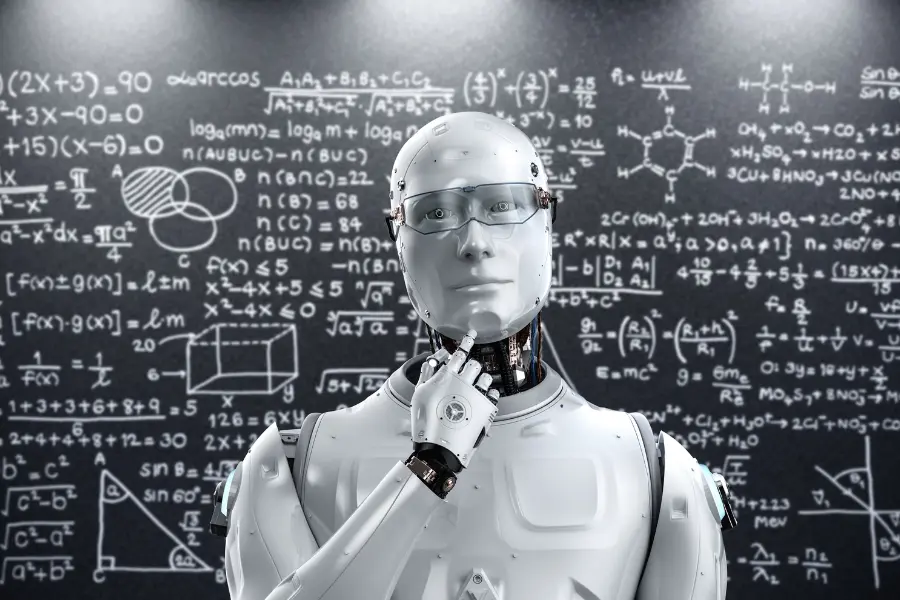Explore How Python Advances Reinforcement Learning in Robotics
Python has emerged as a pivotal tool in advancing reinforcement learning (RL) within the field of robotics, revolutionizing the way robots learn to interact with their environment autonomously. RL, a subset of machine learning, involves training agents to make sequential decisions by interacting with an environment to maximize cumulative rewards. This approach is particularly well-suited for robotics, where real-time decision-making and adaptation to dynamic environments are crucial.

Python's Role in Reinforcement Learning
Python's popularity in RL stems from several key factors:
1. Versatility and Ease of Use
Python's clear syntax and extensive libraries, such as NumPy, TensorFlow, and PyTorch, simplify the implementation of complex RL algorithms. Researchers and developers can quickly prototype, experiment, and deploy RL models due to Python's high-level nature and extensive community support.
2. Rich Ecosystem of Libraries
Python hosts numerous RL frameworks and libraries tailored specifically for robotics applications. Libraries like OpenAI Gym provide standardized environments for testing RL algorithms, while PyBullet and ROS (Robot Operating System) facilitate integration with robotic hardware.
3. Integration with Simulation Environments
Simulations play a crucial role in RL for robotics by providing safe and scalable environments for training. Python's compatibility with simulators like Gazebo and V-REP allows researchers to simulate diverse scenarios realistically, accelerating the development and testing of RL algorithms before deployment on physical robots.
Applications of Python in Reinforcement Learning for Robotics
1. Path Planning and Navigation
RL enables robots to learn efficient navigation strategies in complex environments. Python-based frameworks leverage RL algorithms like Deep Q-Networks (DQN) and Proximal Policy Optimization (PPO) to optimize path planning algorithms dynamically, considering obstacles, terrain, and real-time changes.
2. Manipulation and Control
Python facilitates the development of RL algorithms for robotic manipulation tasks, such as grasping objects of varying shapes and sizes. Algorithms like Deep Deterministic Policy Gradient (DDPG) and Actor-Critic methods enable robots to learn dexterous control policies through interaction with simulated or physical environments.
3. Adaptive Behavior and Learning
RL empowers robots to adapt to unforeseen circumstances and learn from experience. Python's reinforcement learning frameworks support the training of adaptive policies that can handle uncertainties, such as changing weather conditions or unexpected obstacles in real-world scenarios.
Case Studies and Research Advancements
Researchers and practitioners have achieved notable advancements in RL for robotics using Python:
- DeepMind's Robotics Research: DeepMind's work on robotic manipulation tasks using Python-based RL frameworks has demonstrated significant progress in achieving human-level dexterity and adaptability in robots.
- OpenAI's Projects: OpenAI has leveraged Python and RL techniques to develop robotic systems capable of learning complex behaviors, such as robotic arms learning to solve Rubik's cubes through reinforcement learning.
- Academic Research: Numerous academic institutions worldwide utilize Python for RL research in robotics, contributing to advancements in autonomous navigation, multi-agent coordination, and human-robot collaboration.
Future Directions and Challenges
While Python has catalyzed significant progress in RL for robotics, challenges remain, such as:
- Real-World Generalization: Ensuring RL algorithms generalize well from simulation to real-world environments remains a key challenge due to domain differences and sensor noise.
- Sample Efficiency: Improving the sample efficiency of RL algorithms to reduce the amount of training data required for learning complex tasks remains an active area of research.
- Ethical and Safety Considerations: As autonomous robots become more prevalent, addressing ethical concerns and ensuring safe interaction between robots and humans remains crucial.
Python's influence on reinforcement learning in robotics is profound, driving innovation across diverse applications from autonomous navigation to robotic manipulation. Its rich ecosystem, coupled with robust simulation capabilities, empowers researchers and developers to push the boundaries of what robots can achieve autonomously. As advancements continue, Python will undoubtedly play a central role in shaping the future of robotics through reinforcement learning.
Active Events
3 Must Have Projects On your CV to Get into Data Analysis
Date: April 08, 2025 | 7:00 PM(IST)
7:00 PM(IST) - 8:10 PM(IST)
2753 people registered
From Zero to Hero: The Untold Secrets of Becoming a Full Stack Developer
Date: April 09, 2025 | 7:00 PM(IST)
7:00 PM(IST) - 8:10 PM(IST)
2749 people have registered
Data Scientist Challenges One Should Avoid
Date: April 08, 2025 | 7:00 PM (IST)
7:00 PM (IST) - 8:10 PM (IST)
2753 people have registered
Bootcamps
Data Analytics Bootcamp
- Duration:8 weeks
- Start Date:October 5, 2024
Data Science Bootcamp
- Duration:8 weeks
- Start Date:October 5, 2024
